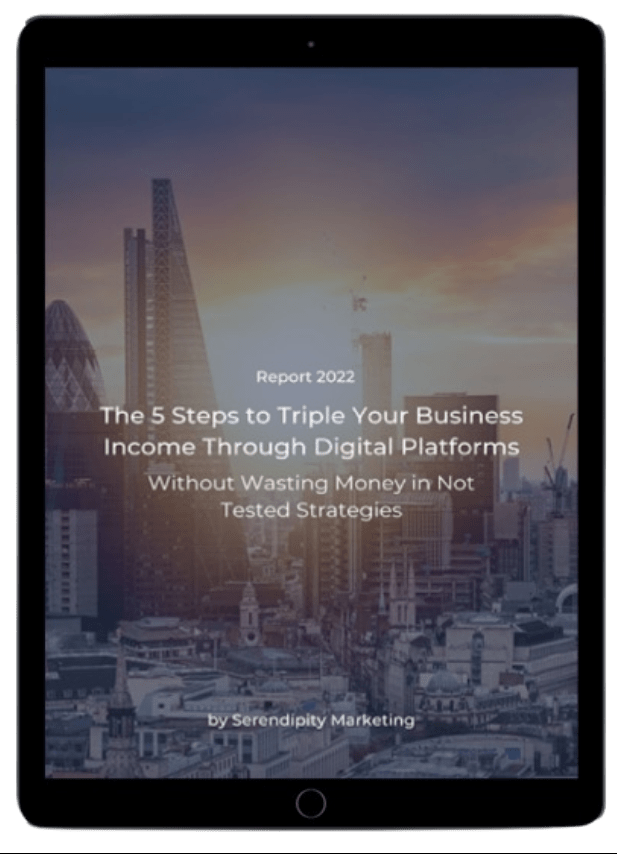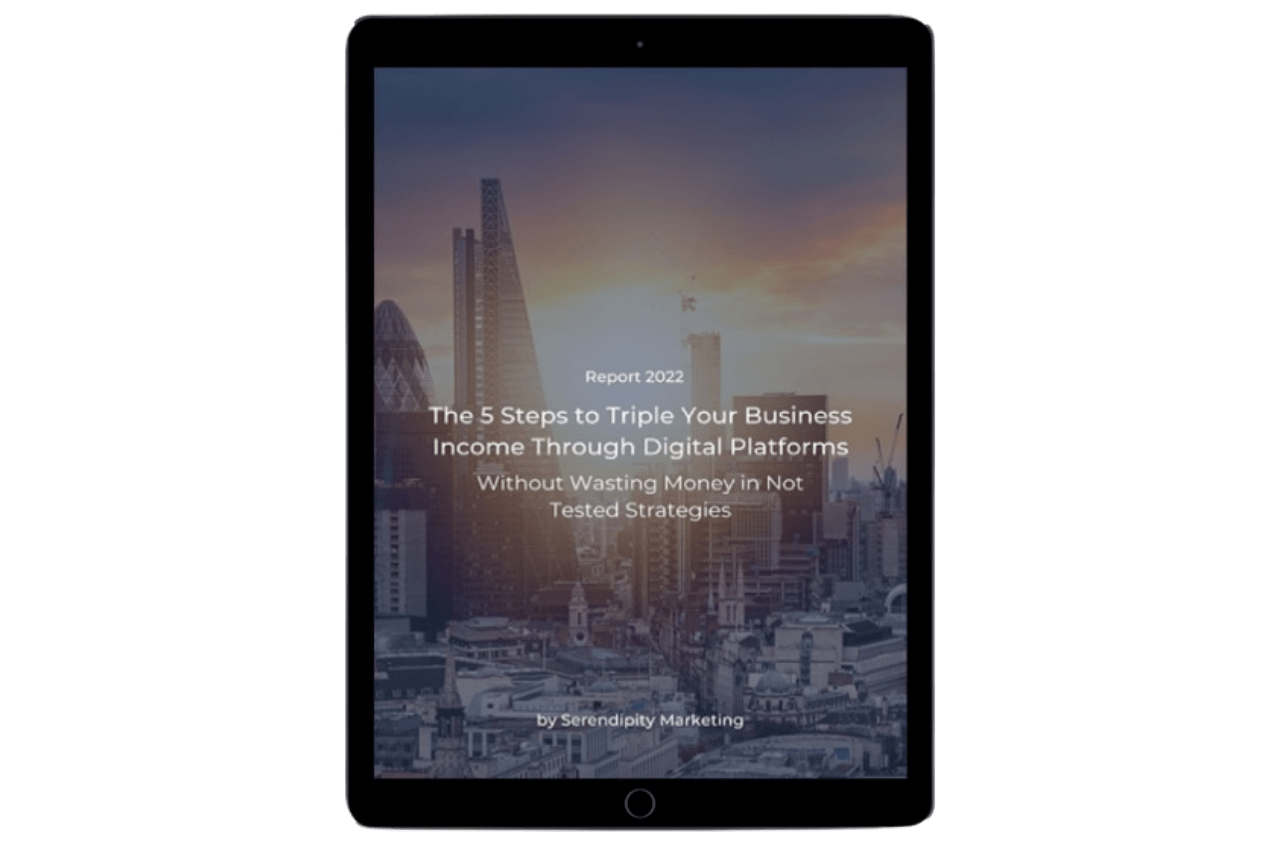Wix, WordPress, Squarespace. There are so many platforms out there. How do you know which one is the best website builder for SEO? Which one should you use?
WordPress is free, Wix costs money, and Squarespace is also out there. There are just so many options, they're all really popular, so how do you know which ones to choose from?
In this article, we are going to talk about Wix versus WordPress versus Squarespace, to show you which one is the best website builder for SEO.
Hi there, and welcome back to Serendipity Marketing. We're a digital marketing agency with a mission to help businesses grow by applying psychology to their marketing strategies.
Before we get started, please go ahead and follow us on LinkedIn, Facebook, or Instagram.
Best Website Builder For SEO
So, before we dive into each of the platforms, let's go over some basic stats that we got from BuiltWith.
WordPress currently powers more than 50% of the web. Literally, more than 50% of the web. Wix, according to BuiltWith, comes in second with roughly 7% of all websites, and Squarespace comes in third with over 4% of the websites.
Now, 8Tracks, which is an SEO tool, actually ran an interesting study comparing Wix versus WordPress versus Squarespace. And they were trying to break down all right you know which ones drive more traffic and here are some stats that they found out.
46.1% of WordPress domain names get organic traffic against 1.4% of Wix domain names. Similarly, Squarespace was at roughly 15.1% of search traffic.
Now, you're probably thinking that this data pretty much answers the question. But in reality, 8Tracks weren't trying to say one was better than the other.
The data is pretty much inconclusive and the reason being is that someone who uses WordPress could know SEO much more and they can be much more technical, while someone who's using Wix may not really know SEO as well, for example.
So, we cannot just compare them referring to this data. It wouldn't be an apples-to-apples comparison.
So, let's go over each platform.
WordPress
WordPress, it's the most popular one. It's really good if you're SEO savvy because there is just so much flexibility and customization that you can do on WordPress that you can't do with other platforms out there.
The cool part about WordPress is that it's simple in that you just add plugins. No matter what you want there's probably a plugin that solves the problem for you.
It also has a comprehensive list of advanced plugins. From the Yoast SEO plugin to the all-in-one SEO pack to the broken link checker.
It pretty much has plugins that any SEO would need.
Support is easy to find because there are so many people who use WordPress. There are support forums, there are videos online. You can find tons of answers even on YouTube, and even on Q and A sites like Quora.
They also offer templates, so you can have a website that is already optimised for mobile speed versus one that isn't optimised for mobile speed.
And now let's get into some cons.
WordPress cons
If you download too many plugins, it could affect your site speed. You don't necessarily need any technical skillset, but it isn't as simple as drag and dropping compared to some of the other platforms.
So, in other words, if you want to customise the experience, a little here a little there, you do need to know some code or you need to hire someone to help you out.
Alright, now before we move on with the next best website builder for SEO, have you ever thought about how much you should invest in marketing to generate constant business growth? Click the button below to calculate the ideal marketing budget you should allocate for higher visibility, engagement, and profit.
How much should you invest in Digital Marketing?
Wix
If SEO isn't your priority and you just want something that's simple, and easy to use, like an easy-to-use CMS then Wix is a great solution for you.
It includes an SEO wizard that optimizes your site automatically. That makes it really easy if you have a new website.
It also includes AMP pages. AMP is Google’s framework that helps webpages, specifically mobile ones load faster.
Now are some cons of Wix.
Wix cons
The first big con is that there's not too much customisation of metadata, titles, or URLs.
Another big one is that a lot of time it takes a little bit longer to get your site indexed and the reason being is that some of the Wix-based sites use a lot of AJAX which causes some slow down.
Also with architecture, it's more traditional - meaning that you can't do a ton of unique, creative things with architecture to really improve your SEO.
So, if you're looking for a more modern site architecture that's very flexible and you can change it from category to category or section to section, Wix is probably not a good fit for that.
Squarespace
The third platform is Squarespace. It's good for small and simple sites that don't require anyone to know much about SEO.
The site offers really pretty designs and, of course, they also have some nice site architecture built-in.
They allow custom title tags and metadata which is great and it supports functions like XML sitemaps, and store watch TXC.
However, you can't really edit them so this is kind of a pro and a con.
Now, let's dive right into the cons.
Squarespace cons
Indexing pages to Squarespace sometimes can be challenging. We've seen customers online complain that it can take weeks or even months for pages to get indexed.
And sometimes this isn't because of the platform. This could be that the end-user isn't that savvy when it comes to SEO or submitting their site to google.
They also have their own naming conventions for SEO fields like meta description is labeled as SEO description which could cause confusion as well.
You can't really do anything about that. It's also difficult to add alt text to images.
So if you're looking to get a lot of traffic from Google image search, you're not going to have a ton coming from Squarespace.
Conclusion
So, the bottom line is that all the platforms have their pros and cons.
We prefer WordPress because it has the most customisation options which is ultimately a great benefit when it comes to getting higher results with SEO.
If you need help with your SEO marketing to grow your business in terms of visibility, engagement, and profit, contact us today and speak with one of our digital marketing experts to see how we can build the bridge between the point you’re standing at right now and your goals.



